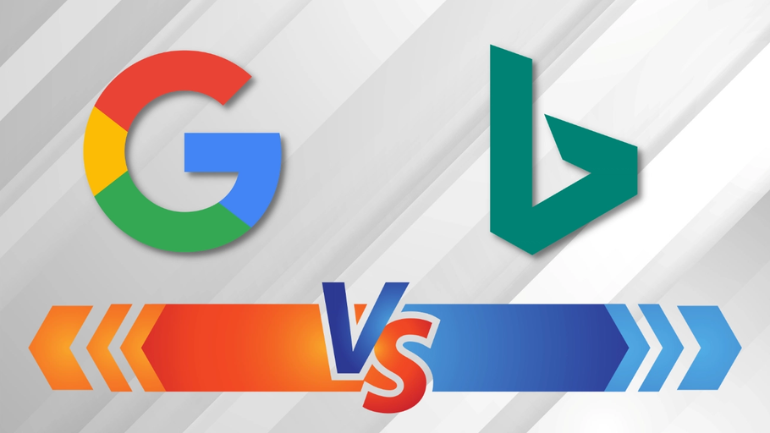Search engine algorithms are the backbone of the digital world, determining the relevance and ranking of web pages in search results. While Google dominates the search market, Microsoft's search engine, Bing, plays a significant role.
Understanding the Bing Search Algorithm is crucial for businesses looking to optimize their online presence. This article will delve into the key factors influencing Bing rankings and gain insights into its functionality. Before going ahead, let's know the theorem.
Overview of Bing Search Algorithm
Microsoft Bing employs an intricate algorithm to determine the relative ranking of websites in response to a user's search query. The user's goal, the content's relevance and quality, and other factors are all considered.
The primary goal of this algorithm is to offer the user the most relevant search results. Bing's algorithm is always being improved to provide better search results. It is easy to understand and does not require any technical know-how.
Bing's Ranking Factors
Bing's search algorithm utilizes various factors to determine the relevance and ranking of web pages. While the specifics of the algorithm are not disclosed, Bing has provided insights into the key elements that influence its rankings. Here are some of the factors that play a significant role:
Content Relevance

Like any other search engine, Bing also focuses on delivering relevant and high-quality content to its users. Factors such as keyword usage, semantic relevance, and content freshness contribute to determining the relevance of a web page.
Page Authority

The score predicts how well a specific page will rank on search engine result pages. Bing considers the authority and credibility of a web page when ranking it. Backlinks from reputable and authoritative sources and social signals contribute to establishing a page's authority.
User Engagement Metrics

To determine a page's quality and user happiness, Bing search algorithm looks at engagement measures like click-through rates (CTRs), bounce rates, and average time spent on the page. Content that is both interesting and easy to navigate usually ranks better.
Social Signals

Bing incorporates social signals from platforms like Facebook, Instagram and Twitter to assess the popularity and relevance of content. Likes, shares, and comments can influence the rankings of any website or other social media content.
Mobile Friendliness

Whether Google or Bing, every search engine prioritizes mobile-friendly websites because of the popularity of portable electronic devices. A responsive layout, quick page loads, and mobile optimization boost rankings on Bing.
On-Page Optimization Strategies for Bing
To optimize for Bing Search Engine, focusing on key on-page aspects that coincide with its ranking parameters is essential. Here are some basic optimization strategies to help you rank your content easily following the guidelines of Bing search algorithm.
- Keyword Research and Usage: Conduct thorough keyword research to identify relevant terms and phrases. Incorporate them naturally in page titles, headings, meta tags, and content while avoiding keyword stuffing.
- Quality Content Creation: Develop unique and engaging content that provides value to users. Maintain freshness by updating and adding new content regularly. Avoid duplicating content from others’ websites.
- Structured Data Markup: Utilize schema markup to provide additional context to search engines. It can enhance the visibility of rich snippets in Bing's search results. Hence, increases the visibility of your content.
- Page Load Speed: Optimize your website's loading speed for a smooth user experience. Compress images and leverage caching techniques to improve performance following Bing Search Algorithm.
- Mobile Optimization: Ensure your website is mobile-friendly and responsive. Test its compatibility across different devices and screen sizes. Also, keep the UI/UX more attractive and easy to understand,
- Internal and External Linking: Create a logical internal linking structure to facilitate navigation and improve crawlability. Earn high-quality backlinks from authoritative sources to enhance your page's authority.
Bing Webmaster Tools
Bing offers a suite of webmaster tools that can assist in optimizing your website for its search engine. Monitoring the performance of your website is made easier with the help of webmaster tools. They can assist you in diagnosing and resolving issues related to your website.
In addition, these powerful tools assist you in evaluating the content of your website so that you may offer the user a more visually engaging experience. Some notable features of Bing Webmaster include:
- Keyword Research: Bing Webmaster Tools provide insights into search queries, impressions, and clicks for your website. This data can help refine your keyword strategy.
- Crawl Control: This feature allows you to control the crawl rate and frequency of Bing's bot on your website. It can be useful for managing server resources and prioritizing important pages.
- Index Explorer: Gain visibility into how Bing Search Algorithm views and indexes your website. Identify any crawling or indexing issues that may impact your rankings.
- Submit URLs: Submit specific URLs directly to Bing's index for faster discovery and indexing. When the quality criteria are met, the content will be indexed and available in Bing search results shortly after the submission of URLs.
- Disavow Links: If you encounter low-quality or spammy backlinks, you can use this feature to disavow them, signaling Bing that you do not want them to influence your rankings.
Which is Better: Bing vs. Google

Even though Google is the most popular search engine, you shouldn't ignore Bing's search engine optimization potential. Bing is the engine behind search results on many other websites, including Windows, Cortana, and Yahoo Search.
It is possible to attract a sizable amount of search engine users to your site by considering Bing's ranking variables and optimizing it accordingly. It's crucial to remember that Bing and Google use different algorithms and techniques.
Hence, what works for one may not work for the other. While some forms of optimization are likely to be shared by the major search engines, it is often best to develop a strategy that is specifically designed for each one.
Conclusion
If you want your business to rank highly in Bing searches, you need to know how the Bing search algorithm works. If you consider the most important ranking variables and optimize your site properly, you should see better results in Bing's search results.
Although Google is the most popular search engine, you shouldn't ignore optimizing for Bing because it powers search results for several different devices. Finding a happy medium between Bing and Google optimization will help you reach a wider online audience.








Please complete your information below to login.
Sign In
Create New Account